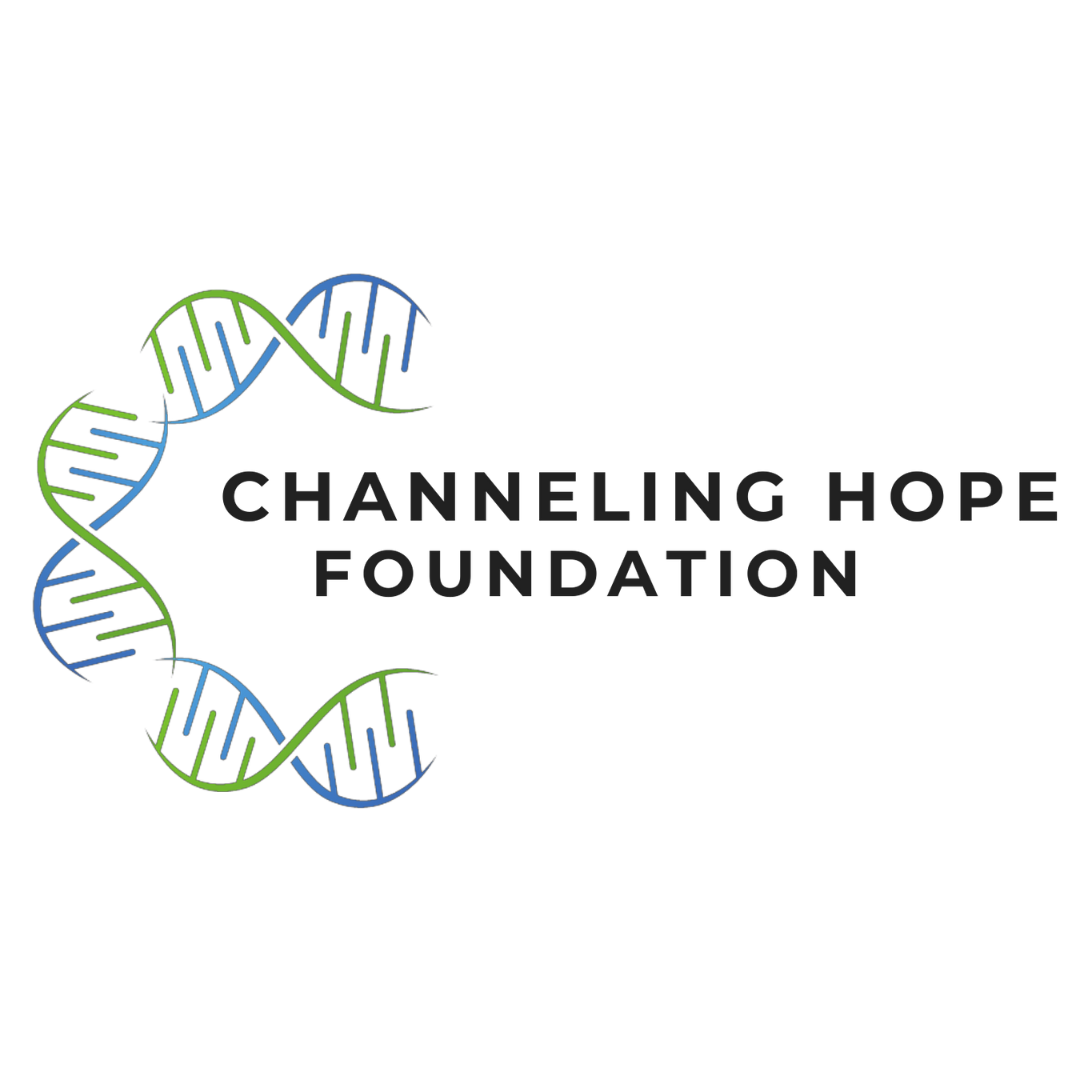Patient Research

Information about NALCN Channel-related disorders can be found in this Fact Sheet from the New South Wales Center for Genetics Education.
PATIENT-DRIVEN RESEARCH

Are you on the NALCN Research Roadmap? Patients and families can help drive research by submitting medical information through the following trusted resources to connect to researchers. The more data we can provide researchers, the greater chance we have at reaching our vision - a world without the complications of NALCN-related diseases. Below are the current platforms to contribute data. We have made every effort to limit duplication across the platforms, and each serves a very important purpose to our NALCN research roadmap.
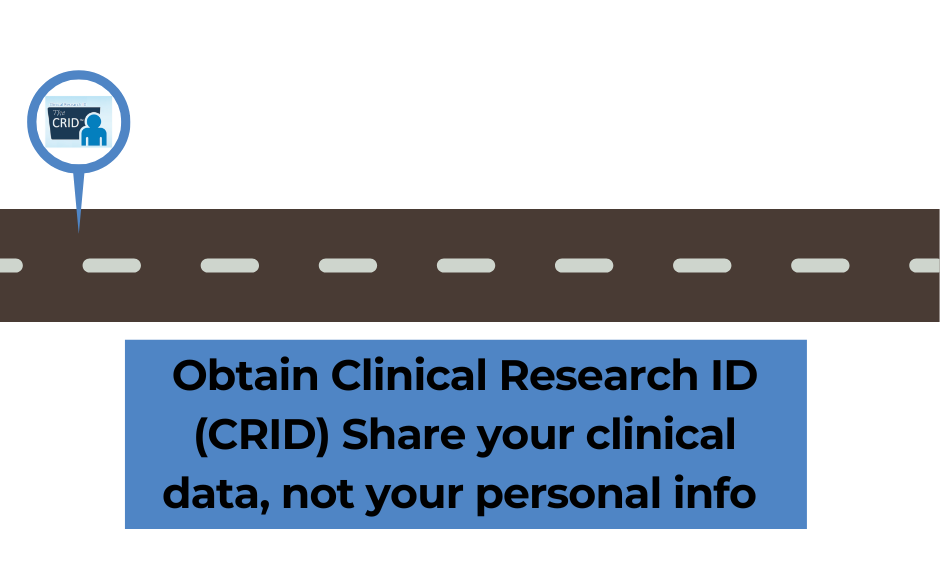
STEP 1: Create CRID for NALCN Patient
Connecting participant data across multiple sources while maintaining data security is crucial for working together on rare diseases. CRIDs (Clinical Research IDs) are a tool to make this connection. They give individuals a unique universal ID, making it simpler for doctors, scientists, and patients to centrally share and access confidential information to collaborate effectively. We ask that you create a CRID for your family member by following the steps below:
Go to the website https://thecrid.org/ to create a CRID for your family member. (You can also create one for yourself. It's quick and easy!)
l.Click on Create an Account and enter an email address: You will receive an email at the entered address with a link to create a login account (username, password, name, and backup email).
2.0nce logged in to My CRID Dashboard click Add New Person: Information you will enter to create the ID will be patient name, sex, birthdate, disease name, gene, and genetic variant.
3.You will receive a Unique Identifier that can be shared with approved research studies and medical providers. Save your identifier! Note: The launch of the RareX Registry will utilize this CRID for your patient information. We are also working to connect it to the Citizen study.
You can visit the Setup CRID webpage for these step-by-step instructions.
CRID Principles:
• CRID is always free for the parent/patient.
• CRID is always optional in a research study.
• CRID data is always private and will never be sold or shared.

Step 2: Participate in CHF Patient Survey
We have created a short survey-known as a "contact registry"-to collect essential information. Your responses will help us estimate the number of patients with NALCN channel genetic mutations and strengthen our application.
Survey Link: https://redcap.uthscsa.edu/REDCap/surveys/?s=PHEMFFLRLTR47NC9&ref=channelinghope.org
Why Your Participation Matters: Natural history studies are crucial for understanding the progression of rare diseases. They help design more effective and relevant clinical trials. By participating, you contribute valuable data that can lead to better treatments, improved patient care, and, ultimately, a cure. Your loved one's medical history, when de-identified and analyzed, provides insights that are otherwise difficult to obtain.
Your Privacy is Our Priority: We understand the importance of privacy and confidentiality. All medical records will be de-identified to ensure your personal information remains secure. Channeling Hope has confirmed its entire team and every partner is committed to maintaining the highest standards of patient data protection.
Join Us in Making a Difference: Together, we can advance our understanding and pave the way for new treatments and cures. Thank you for your support and dedication to our community.

Step 3: Sign up for Citizen Health to collect medical records for NALCN patient
Channeling Hope's partnership with Citizen Health will drive breakthroughs in research and accelerate cures for rare diseases like NALCN-related disorders. The Citizen Health team takes on the burden of health record collection for you, helping you have your health information accessible to help you be more informed and more prepared, and allow you to participate in research.
This collaboration will allow Channeling Hope Foundation to collect the necessary information from patients to complete a Natural History Study for NALCN-related disorders.
1) Sign up the NALCN patient at: https://www.citizen.health/partners/nalcn
2) Request that Citizen Health collect health records on your behalf directly from the healthcare providers you designate. Once your records are released by the provider, they are uploaded to your Citizen Health account. Alternatively, you can upload your records into your account directly.
3) Share your health information by granting someone access to your Citizen Health profile through the "Care Team" or "Share" features. You can grant access to anyone you choose simply by providing an email address for the person with whom you want to share your information. You can designate how long that person should have access to your account and you may revoke access at any time.
Citizen Health will also notify you of opportunities for you to share your health information - and you can decide, either in advance or at the time you receive notice of each opportunity, whether or not you want to share your information.
Citizen Health uses HIPAA-compliant cloud services to maintain your information. Additionally, we encrypt information locally and have stringent policies for staff regarding access to information aimed at ensuring your information is protected at all times. Subject to our policies and terms of use, only you have access to these records. No third parties have access to this information unless you consent to share it with them.
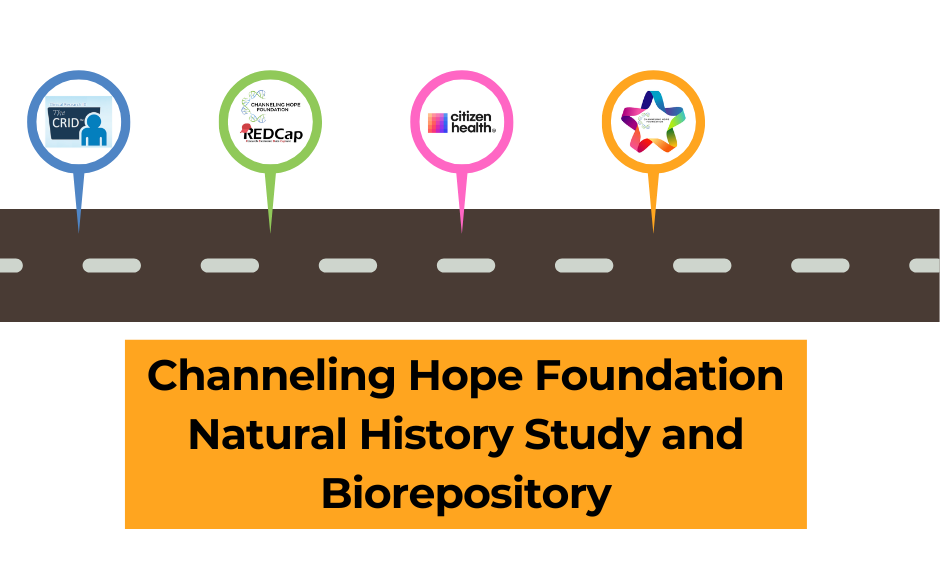
Step 4: Channeling Hope Foundation Natural History Study and Biorepository
We are excited to announce the NALCN Channel-Related Disease Natural History Study and Biorepository. This study is a partnership between Channeling Hope Foundation and UT Health San Antonio led by our Chief Scientific Officer, Jeremy Tanner, MD MPH and supported by the Channeling Hope Foundation team. A Natural History study aims to track the progression of a disease over time to understand how patients are affected. This information is important for developing treatments and identifying measurable outcomes. Alongside collecting information from questionnaires and clinical evaluations available at our in-person conference, we will be starting a NALCN Biorepository where de-identified samples will be stored for scientific research. These blood, saliva, and /or nasal swab samples can be easily shared throughout our science community, reducing barriers to research and accelerating NALCN science. Participating in this study allows you to contribute invaluable insights that could significantly enhance our understanding of NALCN-related conditions and accelerate our goal to develop treatments for individuals affected by NALCN Channel-related diseases.
Participation includes consenting to an exam and review of patient history, contributing blood and/or saliva samples, and completing questionnaires in a timely manner. All visits are provided free of charge. Remote testing is available, though our upcoming NALCN International Conference is an ideal opportunity to get involved.
If you are interested in participating, please contact Emily at emily@channelinghope.org to get started.
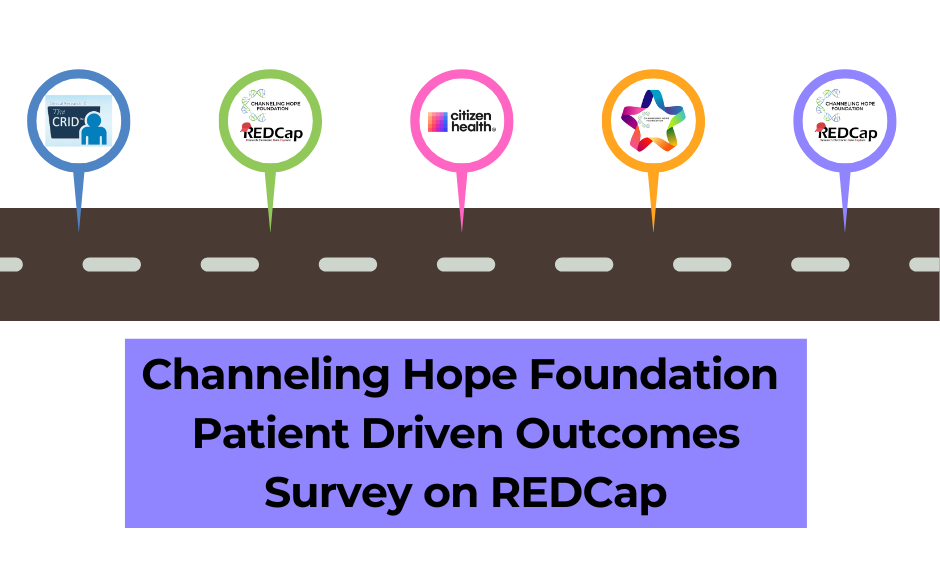
Step 5: Patient Driven Outcomes Survey on REDCap
Complete the Survey: We have created a survey—known as a "patient oriented outcome survery"—to collect information about your daily life. Your responses will help us understand what is important to you and where we can provide the most support. From finance to sleep we want to know what caring for an NALCN-related condition is like every day.
Survey Link: https://redcap.uthscsa.edu/REDCap/surveys/?s=PHEMFFLRLTR47NC9&ref=channelinghope.org
What is Patient-Powered research?
A patient-oriented outcome survey directly measures what is important to patients and caregivers regarding their health and healthcare experience. Changes in quality of life, symptoms, and functional status, are collected in this survey to inform care planning and improve the quality of care as well as identify ways the Channeling Hope Foundation can help and advocate for patients with NALCN-related disease. These surveys gather information straight from the patient without clinician interpretation, ensuring the outcomes reflect the patient's perspective and goals. This approach supports a more patient-centered model of care, helps patients and providers make better-informed decisions, and provides valuable data for evaluating healthcare

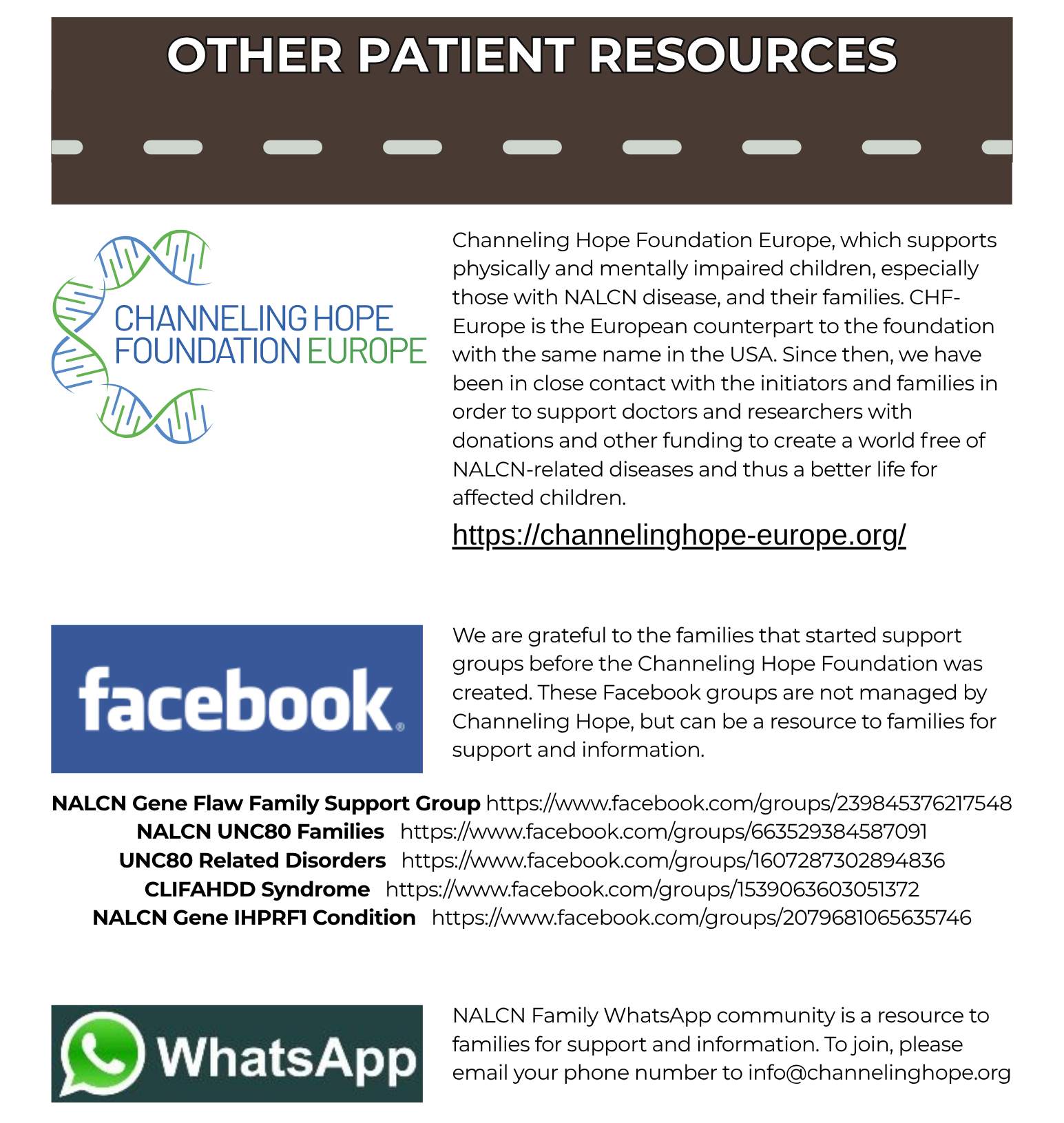

The following resources are connections we have made that you might find helpful:

Once Upon a Gene is a blog and podcast about her family's journey through life with rare disease.


